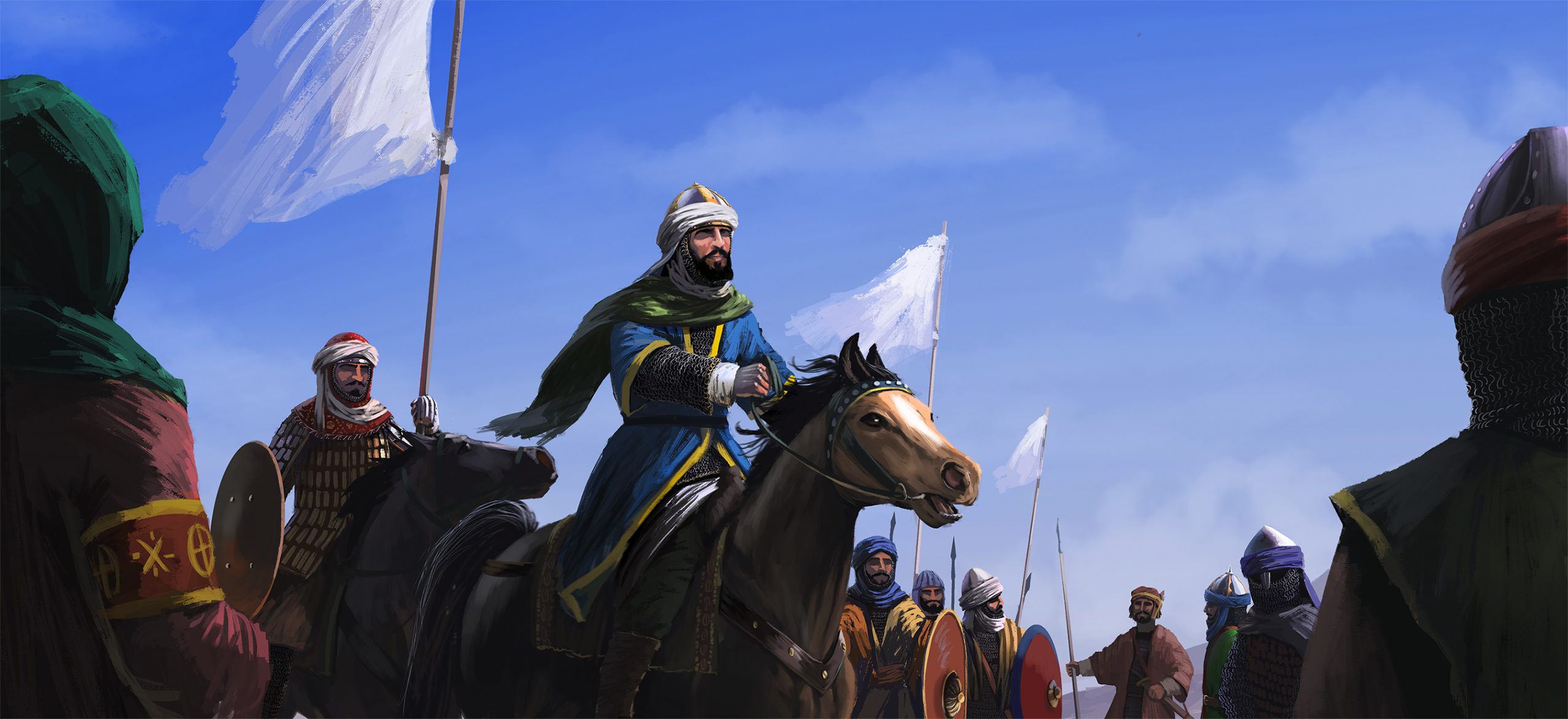Legacy of Zahhak Al-Fihri: Umayyad Muawiyah’s Loyalist and Security Services Chief
Zahhak’s loyalty to the Umayyad rulers, especially Muawiyah, demonstrates the central role played by key figures in the power struggles of the time
Zahhak bin Qays Al-Fihri, also known as Dahhak, was a prominent figure during the early years of the Islamic Caliphate, known for his unwavering loyalty to the Umayyad rulers, particularly Muawiyah bin Abi Sufyan. Born into the influential Fihrid clan of the Quraysh tribe, Zahhak’s life and career were marked by military prowess, political maneuvering, and a deep commitment to the Umayyad cause.
Early Life and Rise to Prominence
Zahhak bin Qays Al-Fihri was born in the late 7th century CE, into the noble Banu Muharib ibn Fihr lineage within the Quraysh tribe. His early years likely benefited from the prestige and connections associated with his noble background. However, it was his military and political acumen that would ultimately define his legacy.
Zahhak’s rise to prominence came through his association with Muawiyah bin Abi Sufyan, who was a prominent governor and later the first Umayyad Caliph. Muawiyah recognized Zahhak’s loyalty and leadership qualities, appointing him as the head of security forces, also known as the ‘ṣāḥib al-shurṭa’, during his governance of Syria.
Military Achievements
One of the notable episodes in Zahhak’s career was his victory over Malik al-Ashtar, in a battle that took place between Harran and Raqqa in 656 CE, forcing al-Ashtar’s retreat to Mosul. This victory solidified Zahhak’s reputation as a capable military commander and enhanced his standing within the Umayyad administration.
Zahhak’s military leadership was further showcased during the pivotal Battle of Siffin, where he commanded the Syrian infantry on behalf of Muawiyah. This battle was a major conflict in the First Fitna, the civil war between Caliph Ali and Muawiyah, and it played a crucial role in shaping the early Islamic landscape.
Governorships and Political Influence
Zahhak’s loyalty and competence earned him the trust of Muawiyah, who appointed him as the governor of Kufa, one of the key Arab garrison towns in Iraq, around 673 or 674 CE. His tenure in Kufa marked an important phase in his career, and he effectively governed the region on behalf of the Umayyad Caliphate.
When Muawiyah was on his deathbed in 680 CE, he entrusted Zahhak with a critical task. Muawiyah instructed him, along with Muslim ibn Uqba, to secure the succession of his son, Yazid I.
Zahhak led the funeral prayers of Muawiyah, and played a pivotal role in ensuring Yazid’s smooth accession to the caliphate. In turn, Yazid confirmed Zahhak as the governor of Jund Dimashq.
Defection and Return
The dynamics of early Islamic politics were volatile and constantly evolving. After the death of Yazid I and his successor, Muawiyah II, Zahhak found himself at a crossroads. With no clear Umayyad successor and the emergence of competing factions, he secretly defected to Abdullah ibn al-Zubayr, who led a rival caliphate based in Mecca.
Ibn al-Zubayr, led a competing caliphate based in Mecca, challenging the Umayyads. Zahhak, however, swiftly declared his public support for Ibn al-Zubayr. Not only did Ibn al-Zubayr acknowledge Zahhak’s governorship of Damascus, but he also granted him authority over the pro-Zubayrid governors of Hims and Qinnasrin.
Soon after this declaration, a fervent champion of the Umayyad cause, General Ubaidullah ibn Ziyad, persuaded Zahhak to reconsider his loyalties and return to the Umayyad camp. Ubaidullah even proposed that Zahhak assume the leadership of all the Quraysh, a position of great influence and prestige.
However, this change of heart proved to be temporary. Zahhak’s supporters remained resolute in their backing of Ibn al-Zubayr’s claim to the caliphate, especially in the absence of a suitable Umayyad candidate. Meanwhile, with the support of Muawiyah’s traditional backers, including Ibn Bahdal of the Banu Kalb and the influential chieftains of the Quda’a and Yemenite tribes, Ubaidullah presented the Umayyad elder Marwan ibn al-Hakam as their preferred candidate for the caliphate.
The Battle of Marj Rahit
Zahhak departed from Damascus to gather the Qaysi tribes loyal to Ibn al-Zubayr at Marj Rahit, a plain located to the north of the city. Meanwhile, Ubaidullah entered Damascus and orchestrated the recognition of Marwan as the new caliph during the Friday prayer.
Subsequently, Marwan, supported primarily by the Banu Kalb and his allies, confronted Zahhak’s forces. This pivotal confrontation unfolded during the extended twenty-day Battle of Marj Rahit in late 684 CE. Tragically, Zahhak met his demise in this battle, and his troops suffered a decisive defeat.
Remarkably, one of Zahhak’s sons, Abdur-Rahman, later managed to regain the favor of the Umayyads. He went on to serve as the governor of Medina during the reign of Caliph Yazid II, from 720 to 724 CE.
Legacy
Zahhak Al-Fihri’s life exemplifies the complex and sensitive dynamics of politics in the early Islamic period. His loyalty to the Umayyad rulers, especially Muawiyah, demonstrates the central role played by key figures in the power struggles of the time. Zahhak’s military achievements, governance of Kufa, and critical role in the succession of Yazid I underscore his significance in early Islamic history.
His legacy serves as a reminder of the complexity and fluidity of loyalties and alliances during this pivotal period in Islamic history.
Structures linked to Zahhak, including his residence, the bathhouse located in Damascus, and a mosque within the Citadel of Damascus, have stood the test of time, ensuring the remembrance of his legacy as a significant figure from the early Islamic period.



